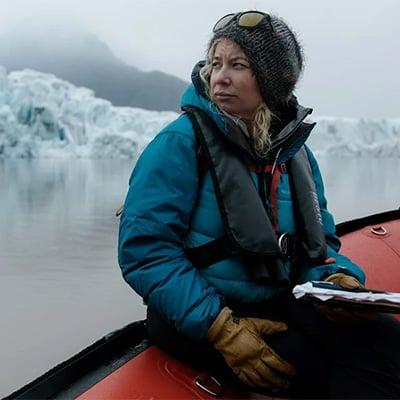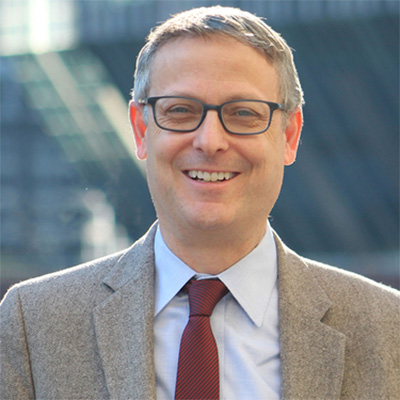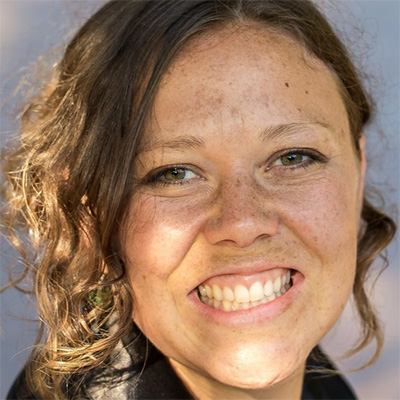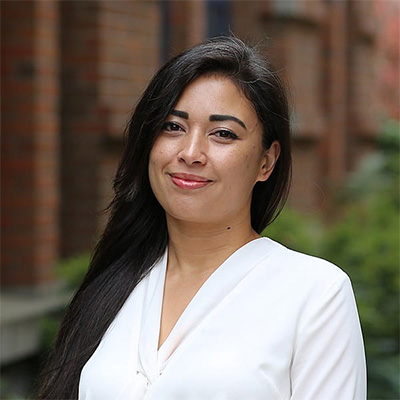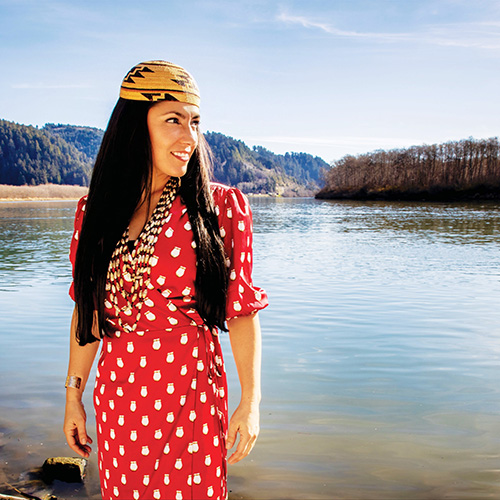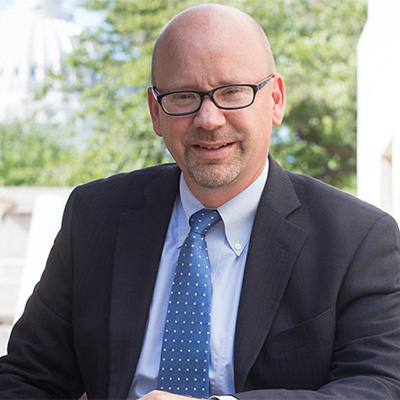Ducks of Impact: Alumni working for environmental change
By April Miller, UO Alumni Association assistant director of marketing and communications,
Peyton Hall, class of 2024 (media studies), communications student associate, and Ed Dorsch, BA ’94, MA ’99, senior associate director of communications
Discover the impacts UO alumni have made to advance sustainable practices, address climate change, and serve as environmental leaders.
The University of Oregon has long been known for its commitment to sustainability and environmental learning. With fifteen interdisciplinary centers, institutes, and academic programs focused on environmental impact, thousands of students have come through its doors to study topics related to sustainability.
Addressing climate change is a big part of the UO mission, and we honor the UO alumni and UO researchers who are building on a long legacy of protecting our natural environment. Whether advocating for policy change, researching sustainable fuel alternatives, bringing Indigenous ecological knowledge into the conversation, working to protect and improve our waterways, or advocating for sustainable consumption—Ducks are making a difference.
This list does not include all alumni who have made lasting environmental impacts, but we extend a thank you all those who honor their alma mater through their dedication to transformative environmental change and creating a more sustainable, equitable future for all.
Territorial Acknowledgement
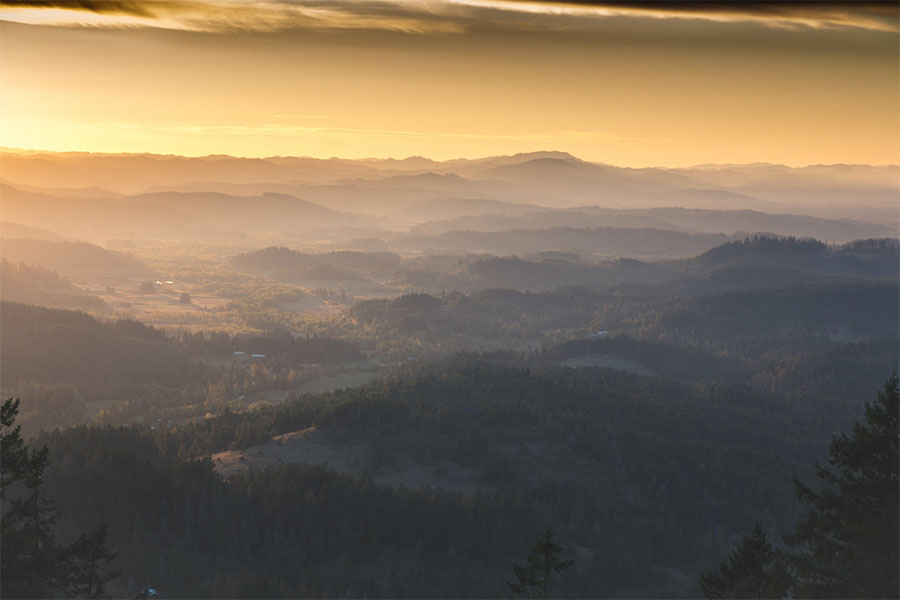
Honoring first nations
The University of Oregon is located on Kalapuya Ilihi, the traditional indigenous homeland of the Kalapuya people. Following treaties between 1851 and 1855, Kalapuya people were dispossessed of their Indigenous homeland by the US government and forcibly removed to the Coast Reservation in Western Oregon. Today, Kalapuya descendants are primarily citizens of the Confederated Tribes of Grand Ronde and the Confederated Tribes of Siletz Indians, and they continue to make important contributions to their communities, to the UO, to Oregon, and to the world.
In following the Indigenous protocol of acknowledging the original people of the land we occupy, we also extend our respect to the nine federally recognized Indigenous nations of Oregon: the Burns Paiute Tribe, the Confederated Tribes of the Coos, Lower Umpqua and Siuslaw Indians, the Confederated Tribes of the Grand Ronde, the Confederated Tribes of Siletz Indians, the Confederated Tribes of the Umatilla Indian Reservation, the Confederated Tribes of Warm Springs, the Coquille Indian Tribe, the Cow Creek Band of Umpqua Tribe of Indians, and the Klamath Tribes. We express our respect to the many more tribes who have ancestral connections to this territory, as well as to all other displaced Indigenous peoples who call Oregon home.
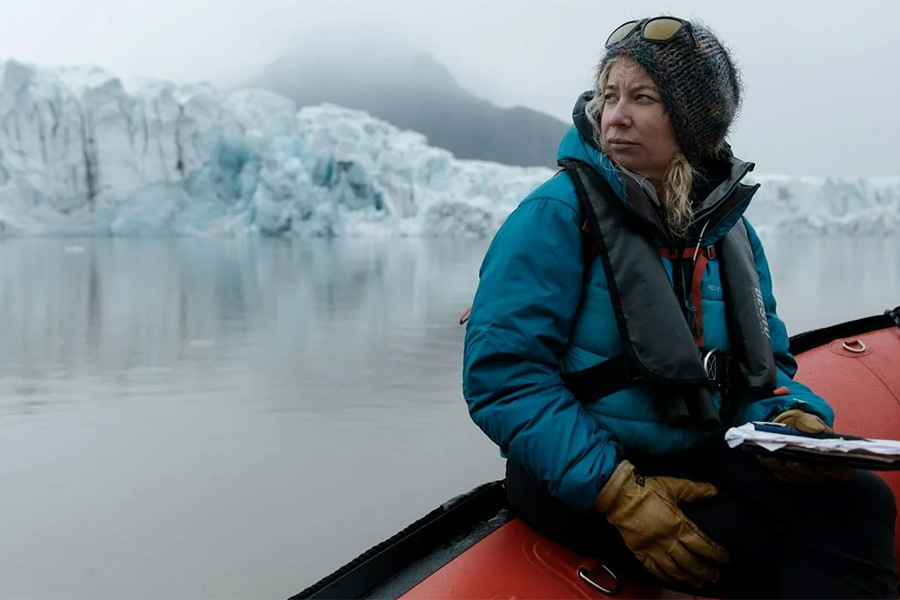
M Jackson, PhD ’17 (geography)
Geographer, Glaciologist, and National Geographic Society Explorer
Growing up, M Jackson did not know that a career in science was possible for her. Jackson did not do well in math and science in school, and she had never met a scientist, much less a woman in glaciology.
Prior to arriving at the UO to pursue a PhD in geography, Jackson earned her bachelor’s degree at Western Washington University, her master’s degree at the University of Montana, and completed a US Fulbright research fellowship in Turkey. In the process of applying to PhD programs, Jackson emailed numerous colleges about wanting to study how humans interacted with glaciers. Oregon emailed her back, saying she could study both in their geography program.
During Jackson’s time at Oregon, she worked in the Glacier Lab under the supervision of Professor Mark Carey, where they created a feminist glaciology framework for environmental change. Jackson also gave a TEDx Talk about feminist glaciology and calling for more inclusivity in glacier science during her time at the UO.
Since completing her thesis, “Tangled Up in Blue: Narratives of Glacier Change in Southeast Iceland,” and earning her PhD, Jackson has become a National Geographic Society Explorer, a host for Crash Course’s climate and energy series, published three books, and starred in Pirate Gold of Adak Island, a Netflix series about a team of elite treasure hunters trekking in the Alaskan wilderness in search of buried pirate gold.
Read Oregon Quarterly’s feature on M Jackson
Listen to M Jackson’s interview on the Duck Stops Here Podcast
“If we want to actually change what science looks like, maybe it’s not an issue of hiring new scientists who will just replicate what has happened before. Maybe we need to dream entirely differently,”—M. Jackson, PhD, Oregon Quarterly


Brian Imus, BS ’96 (planning, public policy and management)
Executive Director at Illinois Green Alliance
After graduating from the University of Oregon in 1996, Brian Imus moved to the Midwest to pursue a career in public health and safety nonprofit work. He began his career at the Michigan chapter of the Public Interest Research Group as a field director and later worked there as state director. While working at PIRGIM, he contributed to a campaign to reduce mercury pollution from coal-fired power plants and advocated for legislative change related to urban sprawl.
Imus’s work at PIRGIM led him to become the director of Illinois PIRG, and in 2013, he became the executive director of Illinois Green Alliance, a member-driven nonprofit working to foster a green building community and combat climate change. In this role, Imus manages operations, expands partnerships with sector leaders, and develops strategies to advance the latest trends and technologies.
Recently, he helped launch Net Zero Honor Roll, which highlights projects in Illinois that are certified or working toward becoming net zero. He has also secured fifteen Neighborhood Power Project building pilots throughout Chicago neighborhoods, oversaw the expansion of the Illinois Green Schools Project to thirty schools and more than fifty professional mentors, served as a member of the City of Chicago’s Building Decarbonization Policy Working Group, and is a steering committee member for the Illinois Clean Jobs Coalition.
Imus was recently recognized as a Notable Leader in Sustainability by Crain’s Chicago in June 2022.
“I’m most proud of the ways my career has focused on centering communities through sustainability. When we bring efficiency and climate action to people through buildings, we provide healthy, resilient places for people to live, work, and learn.”—Brian Imus

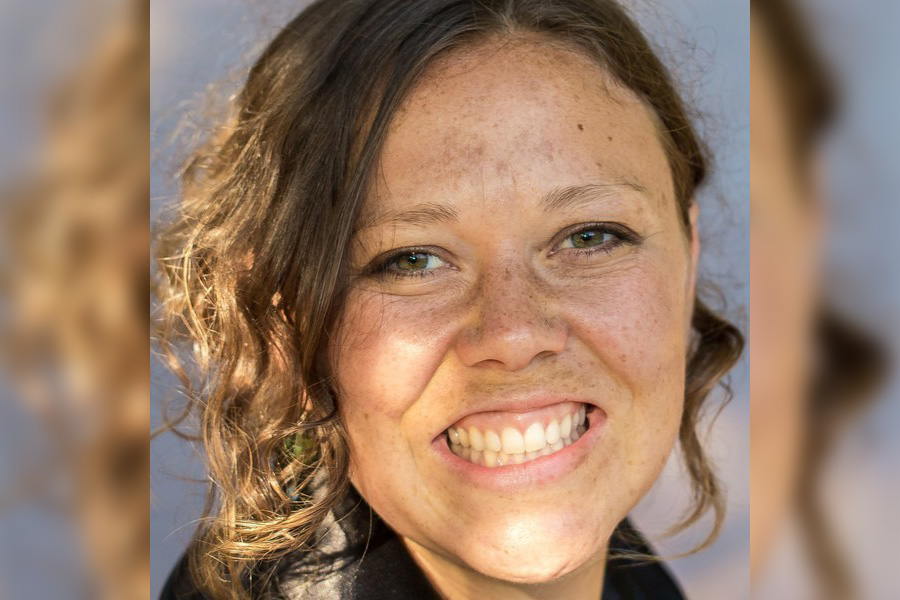
Virginia Klausmeier, BS ’04 (general science), MS ’06 (human physiology)
President and CEO of Sylvatex
After Virginia Klausmeier graduated from the University of Oregon, she began her career in clinical technology data management and sustainable technology.
Klausmeier has dedicated the past decade to working toward solutions for climate change, founding Sylvatex, a manufacturing technology company for electric vehicle batteries. Since founding Sylvatex in 2014, the company has won numerous awards at industry conferences and is a National Laboratories and USDA affiliate. Klausmeier is also a member of All Raise, Unreasonable Group, Alliance of Chief Executives, Astia, E2 Emerging Leaders, and Silicon Valley Leadership Group, which help advise and influence public policy in the climate technology industry and provide a community for minority-led organizations.
Klausmeier has multiple patents pending for her work in climate technology and has been a speaker at numerous domestic and international events. She was selected as one of the “Top 10 Women in Biofuels” by Green Tech Media and was named by Forbes for “30 Under 30” in Energy.
“Every day I wake up extremely grateful that we get to work toward improving an emerging industry. I am thankful to work with extraordinary people from all walks of life. My occupation brings me together with so many people all over the world.”—Virginia Klausmeier, Authority Magazine
Oregon’s Environment Initiative
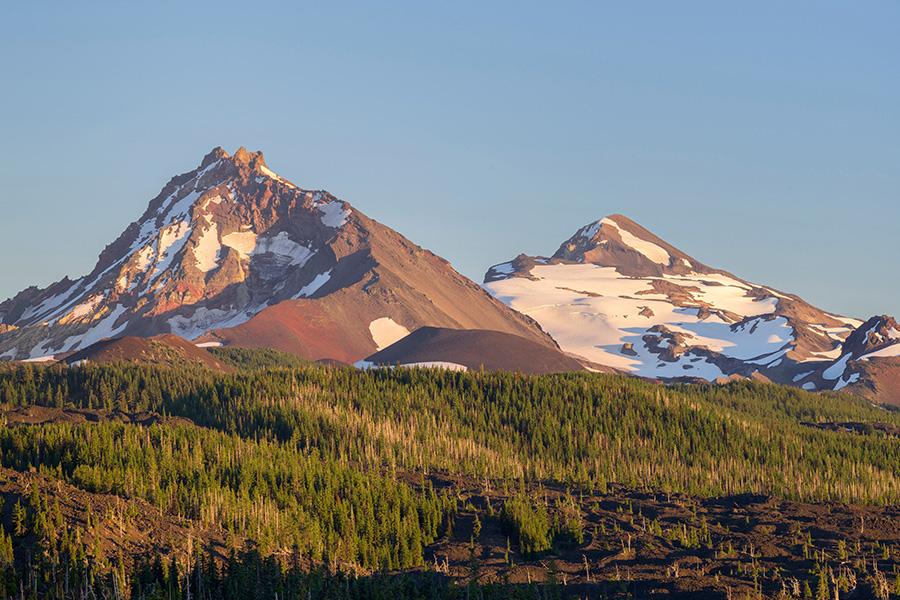
Working toward a just and livable future
The University of Oregon is known for its longstanding tradition of environmental teaching, research, service, and activism. The UO’s Environment Initiative represents a campus-wide coordinated effort to create an intellectual and active hub focused on higher education’s role and contribution to a just and livable future.
Research themes of the initiative include:
- Hazards Resilience
- Energy and Decarbonization
- Ecology, Systems, and the Designed Environment
- Natural Climate Solutions, Restoration, and Biodiversity
- Indigenous Ecological Knowledge and Sovereignty
- Water Futures, Lifeways, and Sustainable Systems
- Social Change through Environmental Education and Communication
Through this initiative, the UO recognizes the needs to address the urgency of climate change and in doing so, address questions of social equity and justice.
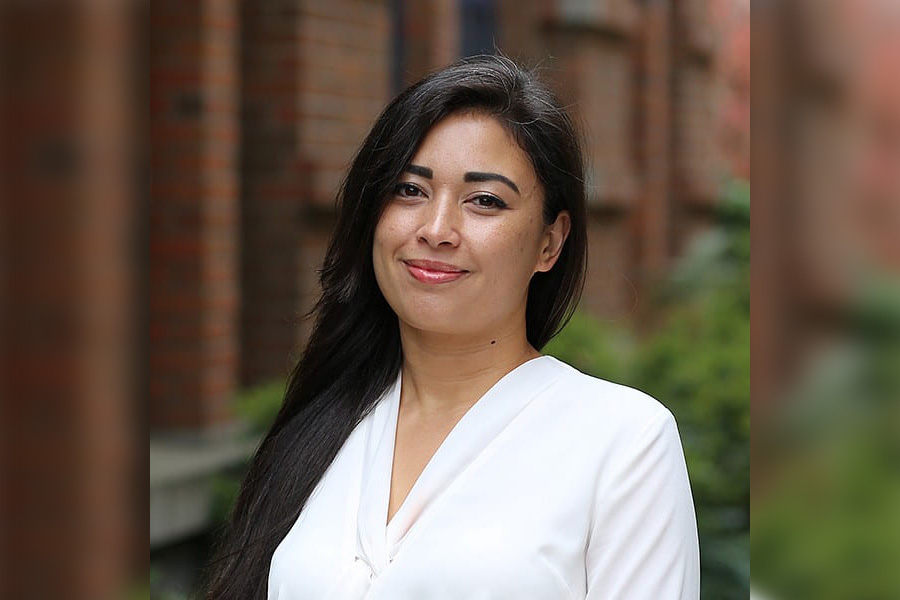
Rose Poton, BS ’20 (general social science), MS ’22 (conflict and dispute resolution)
Equity, Environmental Justice, and Racial Justice Specialist at Oregon Water Resources Department
Rose Poton is a Double Duck whose work focuses on approaching complex environmental issues and conflicts through community engagement with a health, equity, racial, and environmental justice lens.
Poton currently serves as equity, environmental justice, and racial justice specialist for the Oregon Water Resources Department. Beginning July 3, 2023, she will transition into a new role as Verde's new water justice coordinator. Prior to these roles, she was an environmental justice fellow and project manager for the Pacific Northwest Just Futures Institute for Racial and Climate Justice, a multidisciplinary collaboration between the UO’s College of Arts and Sciences and College of Design, alongside other partners. During her time with the institute, Poton supported the Willamette Partnership’s community-led drinking water quality testing program and the Oregon Water Futures Collaborative. This work earned her a Student Leadership in Sustainability Award in 2022.
Before earning her bachelor’s and master’s degrees at the UO, Poton had a career in health care, working as a nursing assistant and nurse for twelve years. She maintains her nursing license by working part-time nursing hours. Through her work in the health care field, Poton said she recognized the significance that communities and environments have on one's individual health and wellbeing. This compelled her to make a career shift to environmental policy, where she’s able to support historically disadvantaged communities’ access to water and natural habitat care.
“I chose to pursue a career in environmental conflict resolution and environmental justice because I recognized how important healthy environments and communities are to individual health and wellbeing. The UO helped prepare me for my career by creating opportunities and space that encouraged me to practice and develop skills in addition to making professional connections and relationships with experts in environmental conflict resolution, environmental justice, and community engagement. The aspect of my work I am most proud of would have to be that it focuses on communities, environmental justice, and working towards just and equitable futures for all people and environments.”—Rose Poton

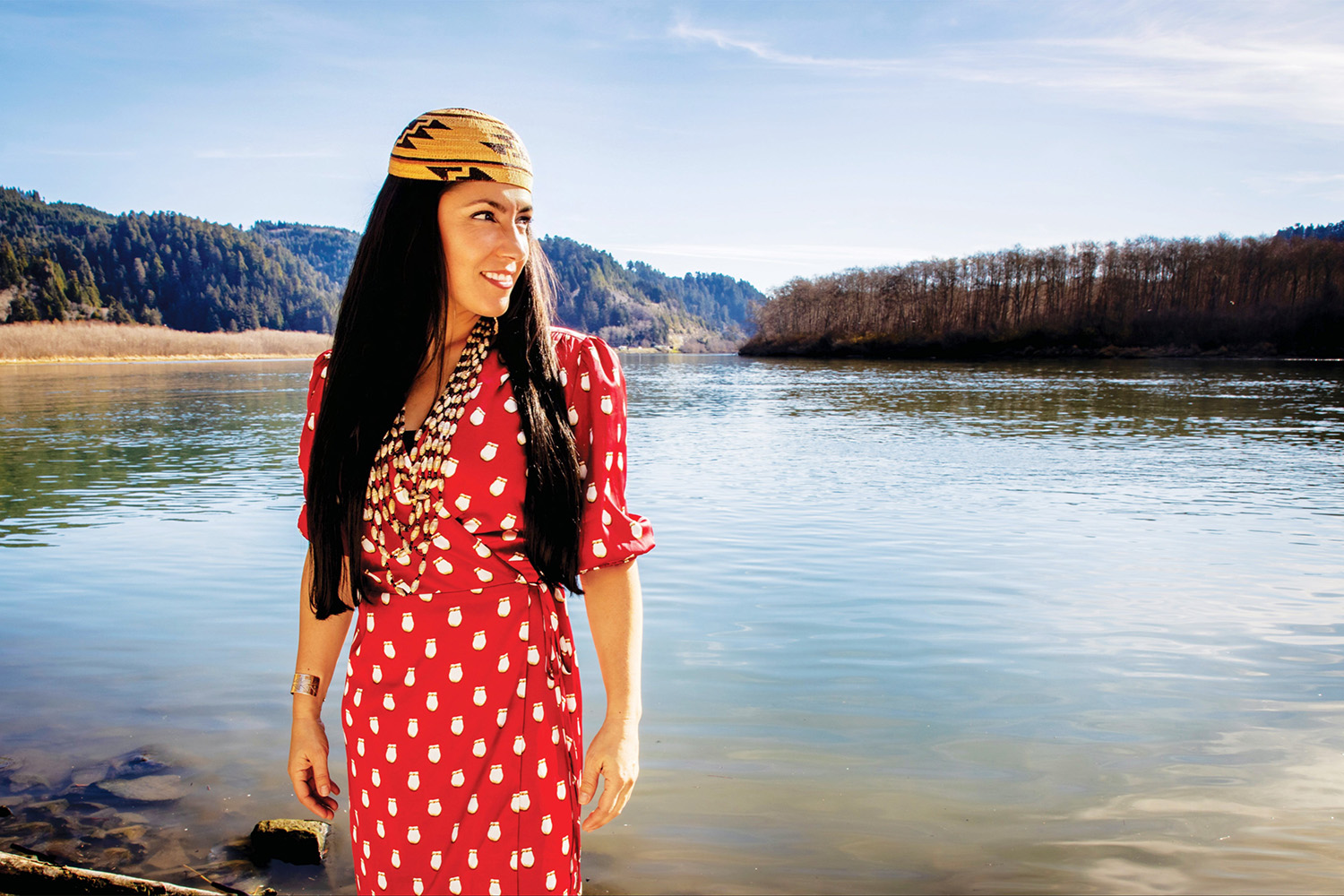
Amy Bowers Cordalis, BA ’03 (political science)
Co-principal at the Ridges to Riffles Indigenous Conservation Group
Amy Bowers Cordalis is a mother, fisherwoman, attorney, and member of the Yurok Tribe. She is the co-principal of the Ridges to Riffles Indigenous Conservation Group, a nonprofit representing Indigenous tribes, organizations, and people in natural and cultural resource matters.
Her work focuses on Klamath River restoration, including dam removal, water rights, and fisheries issues. She is the author of a forthcoming book, Child of Big Water, Indigenous Resistance, Resilience and Stewardship: A Family Story Behind the World’s Biggest River Restoration Project. Since colonization, every generation of her family has fought for Yurok rights, with their Supreme Court case, Mattz v. Arnett reaffirming the status of the Yurok Reservation as Indian Country.
Cordalis graduated from the University of Oregon in 2003 with a bachelor’s degree in political science and a minor in environmental studies. She earned a law degree from the University of Denver. She served her tribe as general counsel and was a staff attorney at the Native American Rights Fund.
Among other successes, she was named one of “100 Ducks who Made a Difference” in Oregon Quarterly magazine’s 100th anniversary issue, where she was included in a list of UO alumni, students, faculty members, staff, and friends making significant contributions to Oregon and the nation. Additionally, Cordalis will serve as the speaker at the UO’s 147th commencement ceremony, set for Tuesday, June 20.
“The University of Oregon provided me with an invigorating academic experience, rich cultural activities, and a supportive community that allowed me to exercise self-determination. I was able to explore different parts of myself through being on the cheerleading team, singing in the gospel choir, working at the Cultural Forum planning the folk festival, sailing, and being active in the Native American Student Union. All the while, (I was) studying politics and environmental studies, developing lifelong friendships, building confidence in myself and an understanding of the world. This empowered me to serve my community, river, and the country. I am forever grateful to the University of Oregon.”—Amy Bowers Cordalis, AroundtheO

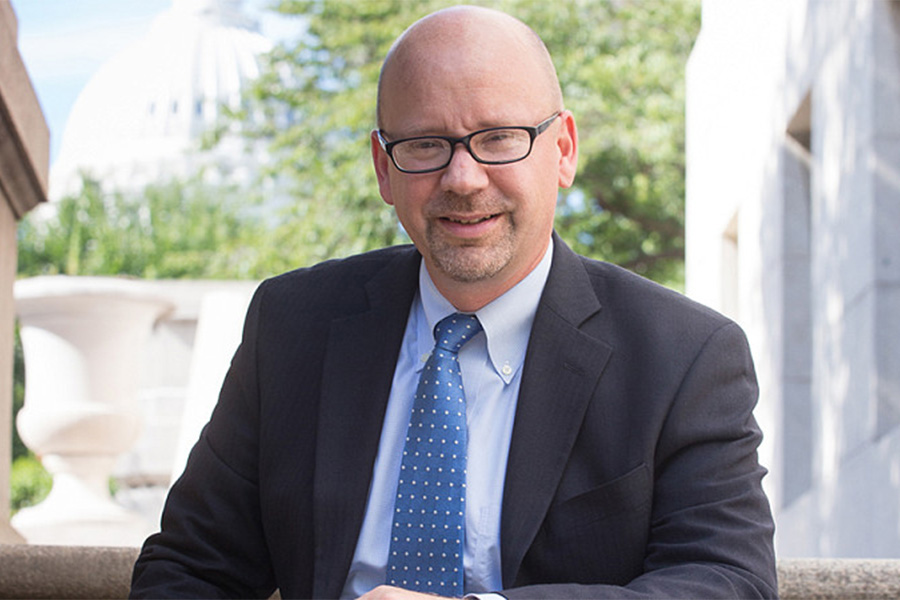
Greg Dotson, JD ’95
Associate Professor, UO School of Law Environmental and Natural Resources Law Center and UO Environment Initiative Senior Faculty Fellow
Gregory Dotson leverages the law to mitigate climate change—advancing federal environmental legislation, interpreting it, and helping others put it to work.
With the know-how for keeping the gears of Congress grinding forward, he has pushed bills through bureaucracies and expedited policy changes. It’s complex, nuanced work. But the results are palpable: reductions in greenhouse gas emissions from cars and trucks, farsighted environmental policies, federal support for renewable energy, and more.
Dotson grew up in Virginia, rock climbing and backpacking in idyllic locales such as the New River Gorge National Park and Seneca Rocks. He taught at the National Outdoor Leadership School and climbed in destinations as diverse as Wales and Yosemite National Park.
He parlayed this passion for the outdoors into a UO law degree with a focus on the environment—and opportunities to explore (and conserve) the wilder areas of the Pacific Northwest. Those regional journeys opened his eyes to more global concerns, especially climate change.
For two decades working in the US House of Representatives, Dotson moved important environmental legislation forward. He also participated in crucial oversight efforts and investigations.
Dotson joined the Oregon Law faculty in 2017, but it wasn’t long before Congress came calling. In 2021, Dotson took a leave of absence to serve as chief counsel for the US Senate Committee on Environment and Public Works. In this key role, he helped write and pass the Inflation Reduction Act (IRA) of 2022—landmark legislation that includes historic climate action.
Back in the classroom, Dotson hopes to inspire his law students—many of them future environmental champions—by sharing all that practical experience. And he continues working to make sure the IRA is implemented effectively.
“When I attended the University of Oregon, I was an avid backpacker and rock climber focused on natural resource law. I quickly realized climate change affects everything.”—Gregory Dotson
Environmental education and research at the UO
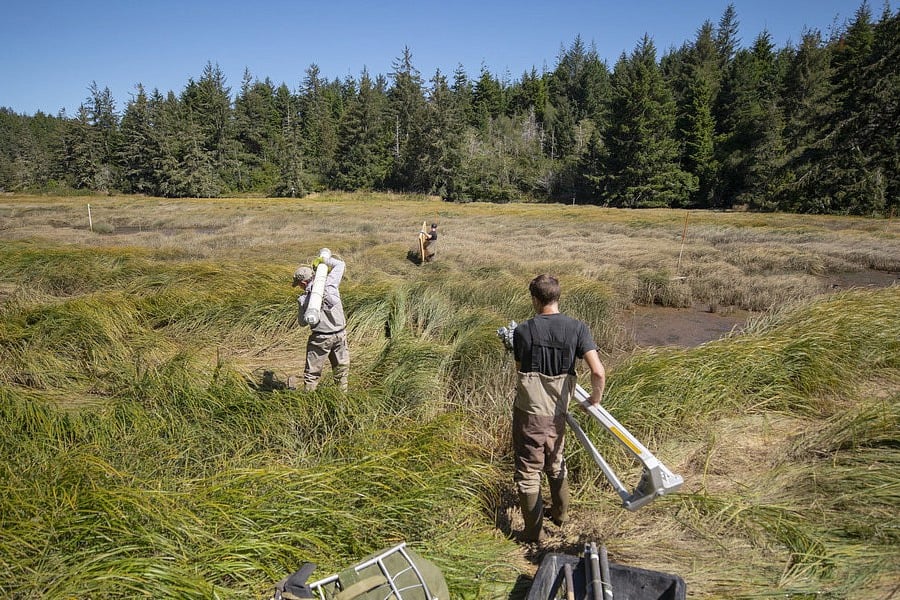
Oregon’s interdisciplinary approach to research with impact
The University of Oregon strives to be transdisciplinary and innovative in building opportunities for teaching, research, and service centered around climate solutions and environment and sustainability related topics. There are fifteen interdisciplinary centers, institutes, and programs that focus on different environmental impacts:
- Center for Environmental Futures
- Centers for Science Communication Research
- Center for Sustainable Business Practices
- Environment and Natural Resources Law Center
- Environmental Leadership Program
- Environmental Studies Program
- Institute for Ecology and Evolution
- Institute for Health in the Built Environment
- Institute for Policy Research and Engagement
- Institute for a Sustainable Environment
- Oregon Institute for Marine Biology
- Sustainable Cities Initiative
- Sustainable Cities and Landscapes Hub
- Tall Wood Design Institute
- Urbanism Next


